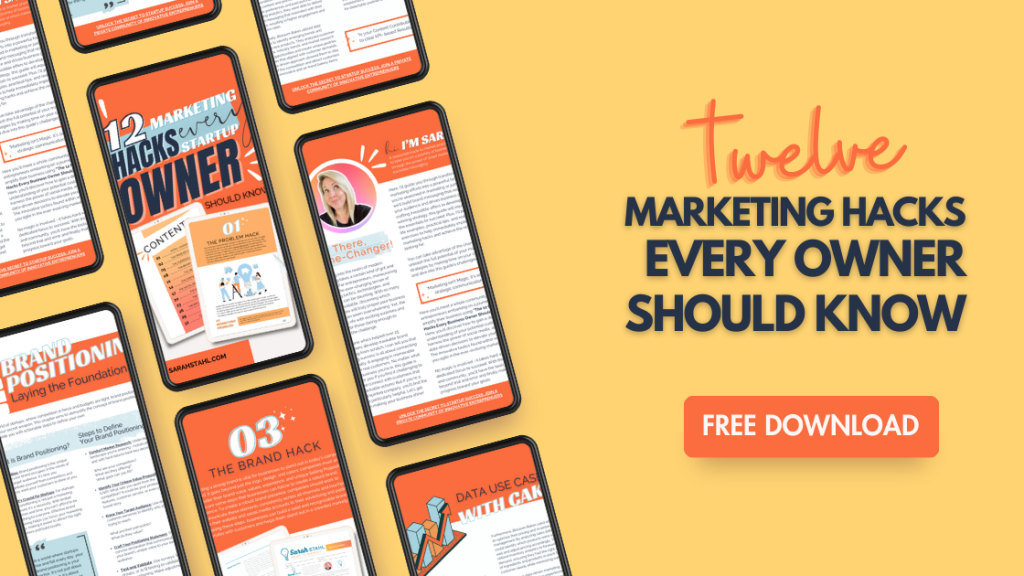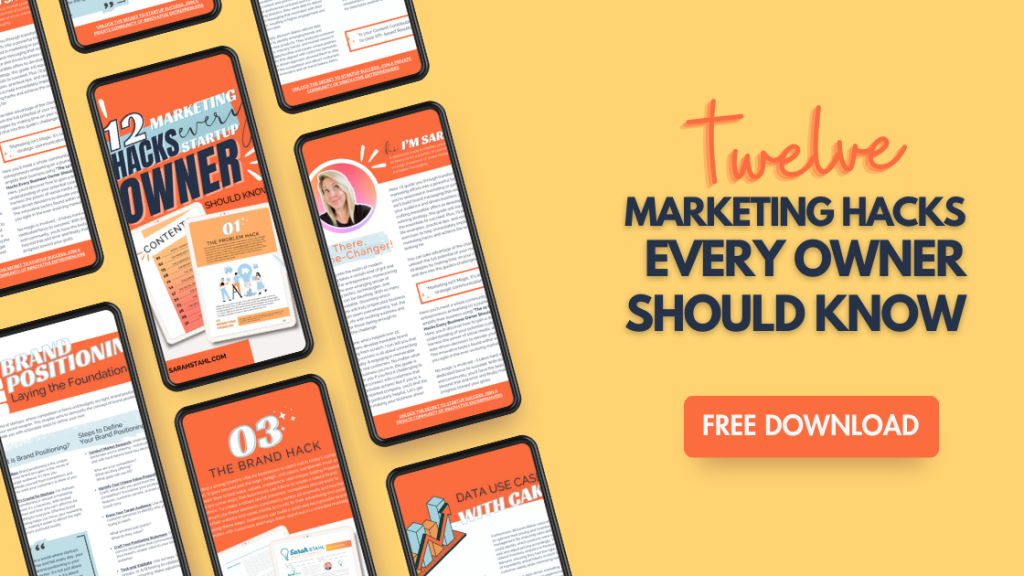
Psychology Over Tools: Why Mindset Matters More in Startup Marketing
In the realm of startup marketing, a captivating tale unfolds—one where the mental fortitude of founders takes center stage over the gleaming arsenal of marketing tools at their disposal. Welcome to “Psychology Over Tools: Why Mindset Matters More in Startup Marketing,” an exploration of the cerebral underpinnings that can make or break a marketing campaign.
The Foundation: Mindset Over Matter
At the heart of every successful startup marketing strategy lies a crucial, often-overlooked element: the founder’s mindset. Before the first tweet is sent or the initial ad is placed, it’s the founder’s psychological approach that sets the trajectory for success. Research has repeatedly highlighted the significance of traits like grit, resilience, and adaptability in determining entrepreneurial outcomes.
The Grit That Fuels Growth
Angela Duckworth, in her groundbreaking work on grit, defines it as “perseverance and passion for long-term goals.” In the stormy seas of startup marketing, this translates to relentless experimentation, learning from failures, and staying the course when campaigns don’t yield immediate results. The founder’s unwavering commitment to the vision propels marketing efforts beyond transient trends.
In the crucible of startup challenges, it’s not uncommon for early obstacles to chip away at a team’s resolve. Yet, when a founder weaves through these issues with the finesse of a parkour expert, it leaves many wondering about the secret to their resilience. The answer lies in mindset — a blend of unyielding vision and grounded reality, akin to the deliberate spending of precious investment funds. Misguided perceptions in the early ascent can jeopardize growth, but a robust visionary mindset acts as the keystone, holding the arc of progress intact.
Resilience: Bouncing Back with Insight
Resilience in startup marketing isn’t about bouncing back to the original shape but transforming with each setback. Each marketing mishap offers rich data, and psychologically savvy founders decode these lessons to refine their approach. As Carol Dweck points out in her work on growth mindset, it’s not just about effort but also about learning from feedback to improve.
Adaptability: The Art of Pivoting with Purpose
The lean startup method isn’t just about tweaking products; it’s a philosophy of perpetual adaptation, taking cues from every customer interaction to guide strategic shifts. Founders embracing this approach treat the marketplace like a dynamic classroom, gleaning lessons from every reaction to refine not only their offerings but also how they’re presented and delivered. This ongoing dialogue with the market isn’t a one-way broadcast but a cycle of listen, learn, and adjust. The reason? Understanding and adapting to customer feedback isn’t just about avoiding missteps; it’s crucial for aligning with evolving needs and expectations, ensuring that your business not only survives but thrives by staying relevant and resonant with your audience.
Emotional Intelligence: The Connective Tissue
Beyond grit, resilience, and adaptability, emotional intelligence (EQ) is the connective tissue between founders and their market. It’s the founder’s ability to empathize with their audience, understand unspoken needs, and craft messages that resonate on a human level that gives life to startup marketing strategies.

For example, a study in the Harvard Business Review highlighted that leaders with high emotional intelligence created climates in which information sharing, trust, and learning flourished and that these climates correlated with higher business performance. This showcases the tangible impact of EQ in fostering a thriving workplace culture, which ultimately drives productivity and innovation.
These findings underscore that emotional intelligence isn’t just a soft skill but a critical component that empowers founders to engage authentically with both their team and their market. The ability to empathize with customers, for instance, can transform a marketing strategy from merely transactional to deeply relational, elevating a brand from good to exceptional in the eyes of consumers.
Tools as Servants, Not Masters
In contrast, marketing tools—though powerful—are merely servants to the founder’s vision. They can amplify a message but cannot create its soul. A/B testing, SEO, social media analytics—all these can optimize outreach but cannot substitute the psychological acumen that discerns the ‘why’ behind the data.
Imagine Tara, who kicked off an eco-cool online shop. She threw everything but the kitchen sink into fancy marketing gizmos: top-notch SEO whizbangs, social media juggernauts, and A/B testing wizardry. Yet, her startup’s growth was more of a slow crawl than a sprint.
Then, Tara had a lightbulb moment. She dove head-first into chats with her peeps, hung out in online sustainability hangouts, and realized her crowd wasn’t just about buying green—they wanted to be part of something bigger.
Switching gears, Tara started sharing stories that weren’t just about the stuff she sold but about the difference these choices made in the world. She showcased how picking a bamboo toothbrush over a plastic one was saving turtles and how choosing her marketplace was like joining a club for planet heroes.
By tapping into what her audience really cared about, Tara’s biz took off. Her social feeds lit up, her site was buzzing, and her sales? They went through the roof. All those techy tools she had? They turned into magic wands, making her vision come alive, all because she found the heart and soul of her message.
Tara’s journey is a crash course in marketing 101: it’s all about connecting, not just selling. It’s a reminder that behind every click, like, and purchase is a person looking to be part of something bigger. And when you get that, well, that’s when the real magic happens.
The Storyteller’s Edge
Stories have a unique place in human psychology. Founders who master storytelling don’t just sell a product; they invite customers into a narrative. Simon Sinek’s “Start With Why” mantra encapsulates this: People don’t buy what you do; they buy why you do it. A tool can disseminate a story, but only a founder can breathe life into it.
The essence of storytelling in marketing transcends the mere act of selling; it’s about fostering a connection that resonates deeply with your audience. This principle is at the heart of the guide, “12 Marketing Hacks Every Owner Should Know,” which serves as a compass for entrepreneurs navigating the complex waters of startup marketing. Within its pages, you’ll find invaluable insights on how to craft narratives that do more than capture attention—they build relationships.
By leveraging the strategies outlined in this guide, founders can learn to weave compelling stories that align with their brand’s core values and mission. It’s not just about presenting facts or features but about sharing the ‘why’ behind your brand. This approach mirrors Simon Sinek’s philosophy, emphasizing that customers are drawn to your purpose and the stories you tell that embody this purpose.
Mindset as the North Star
While tools offer startups the means to reach audiences, it’s the founder’s psychological approach that truly engages them. This blog post is a clarion call for founders to invest in their psychological toolkit—to develop grit, resilience, adaptability, and EQ—as these will guide their marketing efforts towards genuine and lasting impact.
As we’ve journeyed through the psychological landscape that influences startup marketing, it becomes evident that mindset is not just a component of success; it is the very cradle from which all strategic decisions spring forth. For the founders reading this, may you find in your mindset the North Star that guides you to marketing mastery.

And for those ready to delve deeper into the symbiotic relationship between psychology and marketing tools, keep an eye on our upcoming resources designed to empower you with the knowledge to elevate your startup’s marketing narrative.
Let the power of mindset lead the way as you craft marketing strategies that resonate, engage, and ultimately, convert.